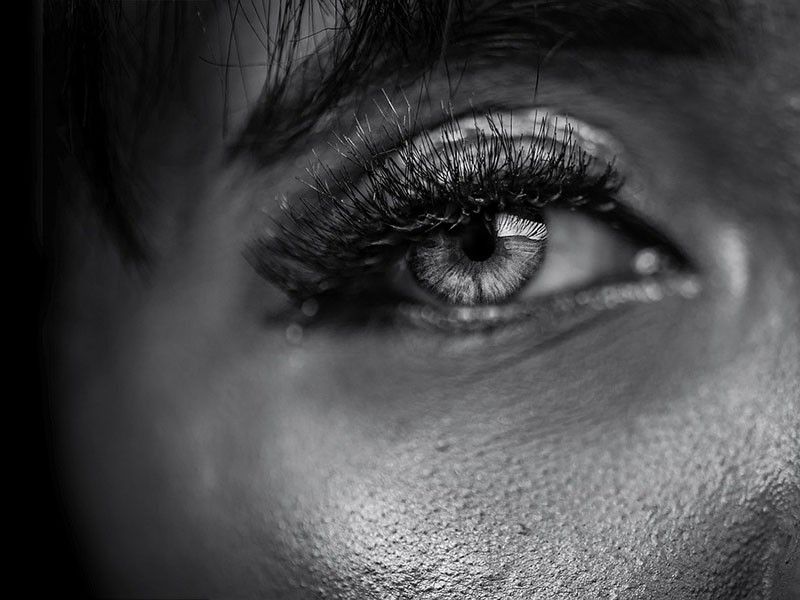The need for responsive and people-centered eye care

Last Oct. 13, 2022, we marked World Sight Day, which is an annual event held every second Thursday of October. It is an International Day of Awareness to remind everyone of the importance of eye health.
According to the World Health Organization (WHO), at least 2.2 billion people globally have a vision impairment or blindness; of these, at least 1 billion have vision impairment, which basically means “a functional limitation of the eye or visual system that can manifest as reduced visual acuity, visual field loss, visual perceptual difficulties, and other visual disturbances” that could have been prevented or has yet to be addressed.
Both vision impairment and blindness can have major and long-lasting effects on all aspects of life, such as daily personal activities, community interactions, as well as school and work opportunities. In fact, in 2020 alone, the WHO estimated the worldwide economic cost of blindness and moderate to severe vision loss to hit a staggering US$ 411 billion.
In the Philippines, based on the 2018 Philippine National Blindness Survey and Eye Disease Study conducted by the Philippine Eye Research Institute of the National Institute for Health, vision impairment and blindness rank among the major concerns in the country with a prevalence rate of 1.98%. This translates into more than two million Filipinos having or acquiring visual impairments - 1.11 million with cataract, 400,000 with uncorrected error of refraction, almost 300,000 with glaucoma, and 200,000 with maculopathy. According to the Department of Health (DOH), prior to the COVID-19 pandemic, there are over 4 million Filipinos living with undiagnosed eye problems that need to be addressed.
The same study has cited that the prevalence of visual impairment in the country has been reduced by 11% as compared to the last survey which was conducted in 2002. The said reduction can be attributed to the blindness prevention and sight preservation programs by the DOH, as well as the continuous efforts of other government, non-government organizations and private sectors or institutions.
However, it is concerning that there are still thousands of Filipinos who are still affected and suffering, given that some of these conditions are preventable, if only they had been diagnosed early. It is hoped that the number did not worsen during the strict lockdowns brought by the continuing pandemic that affected the health-seeking behavior of most of us.
Indeed, eye care needs to be an integral part of universal health care or UHC, which will ensure that all can receive needed health services of sufficient quality, without experiencing financial hardship.
Many of the challenges faced in the field of eye care, including inequities in access and lack of integration within the health system, are addressed in the Regional Action Plan for Integrated People-Centered Eye Care 2022-2030, which was unanimously adopted by member countries, including the Philippines, at the 75thSession of the WHO Regional Committee for South-East Asia, held last September.
Among the priorities of the said Action Plan is to better integrate eye care services into existing health services, especially at the primary health care level; strengthen the eye health workforce; increase the access to assistive devices and new technologies; as well as promote research.
Prior to the onset of the pandemic, there were already enabling laws that could have accelerated the drive to prevent blindness and preserve sight in the Philippines. One of these, the National Vision Screening Act, or Republic Act No. 11358 was signed into law in 2019. This establishes a national vision screening program under the Department of Education to screen the vision of kindergarten pupils. According to this law, trained teachers and school health personnel will check pupils using a kit that comes with vision screening charts.
Moreover, in that same year, DOH Administrative Order (AO) No. 2019-0055 or the National Policy on the Prevention of Blindness Program was signed. It repealed previous guidelines and sought to align itself with the Universal Health Care Law in providing comprehensive eye care services, integrating eye care within local health systems, and responding to emerging eye diseases such as diabetic retinopathy and glaucoma.
Among the program components of the said AO is the seamless referral to ophthalmic units that will provide quality eye care services. This will start at the primary care services for minor eye diseases and health promotion activities, followed by specialized services at the secondary and tertiary level health facilities for diseases needing definitive care and interventional procedures. It will then reach apex hospitals, which will serve as the end-referral centers for highly complex and complicated eye diseases.
The government, both national and local, must ensure the continuous implementation of these laws through provision of appropriate funding and resources. More so, coordination with other partners and stakeholders should be instituted so that a participatory and comprehensive approach can be done. The main objective of these enabling laws is to provide the overall direction that will prevent vision impairment and blindness. No one deserves these kinds of conditions.
Though the pandemic is not over yet, everyone should be aware that eye health, together with other health programs, are an equally important part of well-being. We need to prioritize all aspects of everyone’s health by nurturing a health seeking culture and work together to develop a responsive healthcare system for every Filipino.
Alvin Manalansan is the health and nutrition fellow of think tank Stratbase ADR Institute and is a co-convenor of UHC Watch.
- Latest
























